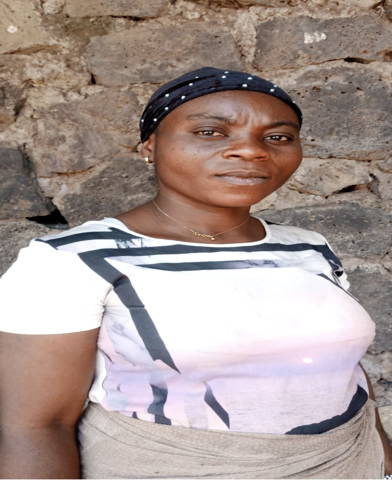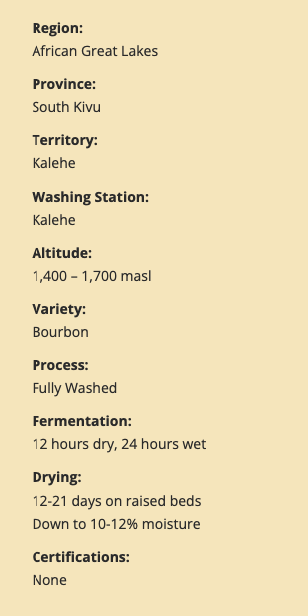MIGHTY PEACE COFFEE PRESENTS

Kalehe
Kalehe comes from producers based in the South Kivu territory called Kalehe. These producers come from different parts of the territory and aren’t affiliated with a cooperative. They opt to work with Cafe Kivu, as they search for markets for their harvest. As demand and awareness of Congolese coffee increases, particularly coffee from Kalehe, local producers will have multiple options in terms of how to monetize their harvest. Either by joining a cooperative, or a service provider like Cafe Kivu.
Producer Testimonials
Pacifique Balume
Coffee is very important for producers like me. It’s how I feed my family and send my kids to school. The money I make through coffee keeps my household and family together.
Anita Kabuo
I was able to buy land in my village and build a house there because of coffee. Not only was I able to build a house but I can send all my kids to school as well because of coffee.
Organization: Cafe Kivu
Cafe Kivu, was founded by Aime Byamungu, who noticed a need among smallholder producers for organization and logistical support. Byamungu acquired that experience himself as he has worked in the logistics space for years before, supporting various cooperatives in North and South Kivu.
Founded in 2018, Cafe Kivu’s mission is to provide services to smallholder farmers, who aren’t members of cooperatives. These services are centered around logistics such as warehousing, milling and transportation.
Producers choose to work with Cafe Kivu as it provides an alternative to cooperative membership for producers who choose not to join a cooperative.
Cooperatives continue to be the best option for most producers, but for some who choose independence and self-reliance, organizations like Cafe Kivu and others provide different options.
Cafe Kivu recently finished the construction of a state of the art mill in Goma. Goma is the largest city in the region, and it is the city from which all coffee leaves Congo. The mill will serve producers that work with Cafe Kivu and also serve as a shared mill for other producers and cooperatives in the region.


